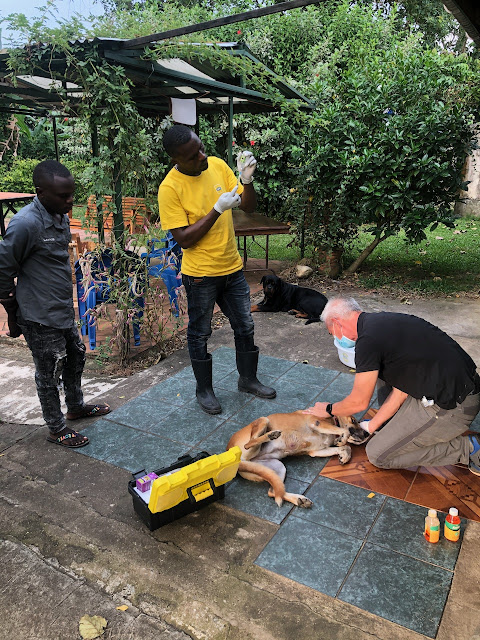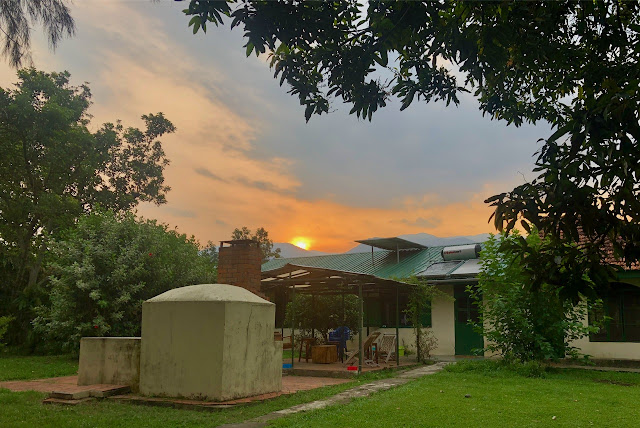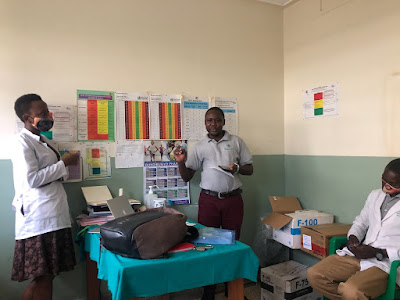Layers on Layers.
This. has. been. a. week.
What would you think of a high school girl who comes back to boarding school pregnant? It's sad and complicated for her life, for sure. What if she was an orphan who had received generous aid? Feels frustrating or irresponsible. What if this is a culture where girls have almost zero access to resources without using their bodies to get money, what if even marriage was basically that arrangement? What if the money was to help a sister? What if the girl had some mental health issues from a prior assault? What if her mother had the same life pattern? Does that change the picture? What if you advocate to keep her in school, but the staff and culture point out serious ways this could be seen as tribal favouritism or as condoning behaviour? What if you find out that though some girls who drop out of school have their baby and return, most get abortions and change to another school? What if it took hours of discussion, and then more hours of accompanying her to her home, so that you can't just make a clinical yes/no decision, but have to see the reality of a disabled sibling and a dysfunctional environment?
What would you do to help missionaries who are hitting the proverbial wall? 2020 was a bear, we all know. We've been living on the edge, bracing for plague, staring down the unknown. We've had all our visitors canceled, all our trips out to retreats or fellowship eliminated. Colleagues left in a little wave as the lockdowns began, on limited evacuation flights, without any compensatory return. The company-wide-conference for 2020 got pushed to 2021 then this month to 2022. Somehow as a collective group left behind, we've all held on through Christmas, through the inauguration and riots, through local politics and elections, and in January the toll is being felt. What would you say if in the same week two key families decided to either leave or significantly step down their work, another was looking for a new field, another was retiring, and two colleagues from other organisations were in mental health crises? Of course you would hope to have compassion. Absolutely you would empathise with the broken systems that have worn them down and out, with their frustrations with our own inadequacies as leaders, with the many complex background effects of their own background challenges behind the veil, losses and sicknesses and struggles. But the cumulative weight of people's dissatisfaction does wear on all.
What would you say as you are leaving the ward, and stop to greet a patient in whom you diagnosed TB as the underlying cause of the baby's severe malnutrition, only to find out that three days later the child still has not received her medicine? Maybe you initially blame the nurses, but they tell you they have sent her to TB clinic two days in a row. Then you think maybe the patient's mother is dodging, but she shows you the very bench where she sat waiting for treatment, the very office she entered, and says she was rejected for care. What if the clinic staff tells you that this is a chronic disease that requires 6 months of compliance, so they find it essential to only start people with a basic grasp of the treatment plan? Should the life of the child be forfeit to the low capacity of the mother or the sense of both the ward and the clinic feeling overwhelmed? What if you found a mother with impending ecclampsia and the treatments that you initiated never were given, the people you talked to never managed to help, you try again, then four days into the course the baby is finally delivered, dead? What if all but one of the oxygen concentrators in the hospital are broken?
All of this is real, all of this is us, all of this is this week. These are nuanced, layered, complex stories. There is no clear villain, no clear hero, no clear path towards redemption. Teacher Desmond preached this morning on the parable of the seeds, and passionately warned the students of the roots they need, the dangers they will face, the essential ground of truth that must be their foundation. The world, the flesh, and the devil, that old Puritan formulation, fits well into that parable. There are extremely broken societal systems that choke out good. There are personal choices to choose short-cuts of sin, that wither in adversity. There are supernatural forces of evil at work that snatch the word truth right out of our lives. In all these stories, for all these students, the reality is strata upon strata of family or culture, of laziness or greed, of curses and fears. Let the one who is innocent throw the first stone. We are all stuck in systems, we are all sinners, we are all suffering attacks.
Several Serge friends mentioned attending a webinar with Makoto Fujimura. I had read his book Silence and Beauty a few years ago, and found it to be a profound text about suffering. So the chatter about the webinar and his new book Art and Faith led me to his web site. There I watched a short video about his technique called "Nihonga: Slow Art." He paints in layers, dozens, hundreds. Each is created by hand-pestled pigments of minerals, earth, stone, pulverised. With out destruction there is no creation, he says. He takes years to build up the layers to show the patterns, colours, light.
This idea deeply encouraged me. One layer at a time, and sometimes our stories are hard. A story of corruption. Of incompetence. Of pain. Another of a choice, a decision to sacrifice, to love. Another of a birth, a connection. Another of a death. Layer after layer. Only with time and distance do we get to step back and see the pattern, see the beauty, see the creative intent.
Praying to view each person's life this way. Some layers are messy. Some are sparkling. Praying to have the patience to see God's bigger story emerging from the pigments ground out of our earth, our engagement here.
































